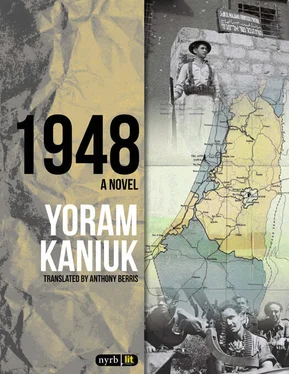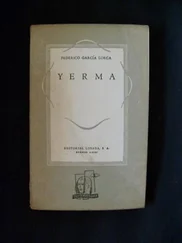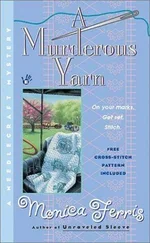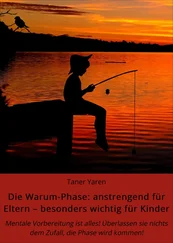Like most of us I was a fool and thought that perhaps I don’t know much about my father. How is it that he hasn’t got any family here, except for a sister and one cousin in Safed who runs a small hotel on the mountainside, and there were lots of uncles and aunts and cousins. I went to see his friend Ernst who lived on Yoash Street, where I sat facing one of my father’s bosom friends, and told him about the man who was my father. I knew that Ernst’s wife, Lili, the gentlest of women, Lili, had been my father’s love and he had been hers, and everybody knew that she was the only woman he’d ever loved. I don’t know how I knew that when I was sixteen, but I did. Ernst was married to Lili because of the inferiority complex of my father, Moshe the Ostjude* , who due to his terrible need to respect only failure and out of his love for failed heroes, out of his failure to play the violin like Huberman and out of his demand of himself to be only great and out of the knowledge that he isn’t really great and can’t be and because of his feeling, like so many others, that he isn’t as distinguished as Ernst, who was born rich in Berlin, thought he wasn’t good enough for Lili, who loved him so much — that sweet putz, my father, gave his only love Lili to his beloved friend Ernst.
Ernst told me what my father, Moshe, had never told me. That he had all these relatives in Tarnopol, and that most of them lived on Baron Hirsch Street, until all of them, sixty men and women, were taken on the same day to a nearby forest and forced to dig a pit, and when they’d finished digging they were driven into it by shooting and were shot again and again in the pit and buried there one on top of the other, and they say that one, the son of Uncle Menashe, survived and came to Palestine via Syria, and the man I’d seen was perhaps that cousin. I felt sadness and shame that my father hadn’t invited the man to live with us and didn’t want to know where he would live. Ernst said that the man was angry with my father for not staying there. For betraying them and not being in the piles of bodies with them.
A little later I heard from a friend of my mother’s, Ze’ev Shiffman, that the man had started work at the refineries in Haifa, and after a time when the riots began, we heard he’d been killed in an Arab attack on the refineries, and my father said drily, That man you asked about was murdered. He was saved when his family died over there in order to die here in the Land of Israel.
On the floor below us lived our neighbor Mrs. Kramsky. A few days earlier she had an elderly lady visitor whom I met in the hallway, and when I asked her if she’d like me to switch on the hall lights upstairs, she seemed confused and said, I don’t understand Hebrew, and she asked, Why? I said, Just because. She said, What’s just because, is just because against why? I said, Why’s the opposite of just because. She said, I don’t understand anything here. Our neighbor Mrs. Kramsky liked me, and once I even drew her late husband for her using an old photograph hanging on her wall. I told her that I wanted to know about her elderly visitor. I told her I’d seen a man who thought I was somebody else, that someone had come to see my father, that perhaps he really was a cousin, and that my father had said he wasn’t, and I want to know.
Mrs. Kramsky smiled. You’re a sabra and you want to know? Very much, I told her. She called to the old lady. The old lady looked at me and asked, Why just because? and smiled toothlessly. Mrs. Kramsky said something to her in Polish and the old lady moved closer to me, touched my face gently, and laughed. It was cold in the room. The old lady sat bent at the window and above her a sudden shaft of sunlight distorted her appearance. Mrs. Kramsky said that the old lady wouldn’t want to talk to me, but she told me herself at great length how the old lady had escaped and how she was in the hands of a man and how she’d pushed wheelbarrows in the snow barefoot, and how they’d wanted to put her to death but they needed her because she knew how to calculate. Her eyes closed, the old lady listened to her history as it was related to me and she began declaiming numbers in German. I knew some German, and she added and subtracted big numbers and said, Ja, ja, Gottenyu gayt schlafen —our God went to sleep — and SS tore off my ear. How whole family killed. How whole town killed. And then she said to Mrs. Kramsky that I wouldn’t understand what she was talking about, and Mrs. Kramsky told her that I would understand, and we sat there until my father came downstairs in his slippers, which back then were called pantofles, and he knocked on the door and said angrily, Don’t talk his ears off with who suffered more.
Here’s another pearl of memory. Was my father really there? Does this story say anything? Is it even important? I’ve written it fifty times since I was a deckhand aboard the Pan York in 1949, when we brought refugees from Europe, when we searched for them in all kinds of holes in Italy and Yugoslavia, and when they came begging us to let them board and there was no more room and they shinnied up the hawsers to board the sardine can that was the Pan York .
One morning I was working on deck scraping off rust and the sea was rough. I saw a group of immigrants coming up from the depths of the ship’s underworld to eat and wait in line for the toilet. They stood in line for hours, and the ship was lurching, and I saw a woman who took out a little toy mirror, which she’d evidently bought from a haberdasher in the ship’s belly because they bought and sold even when they were packed in like sardines, and she tilted her head back, shook out her hair, and curled it with one finger and smiled at herself in the tiny mirror and looked happy.
In Tel Aviv, at night, I lay helpless. I had this talent of thinking about something until I actually entered it. I didn’t really know what I was forbidden to know. I imagined that my father had fallen off a roof, and I felt the break and the pain and I felt death. It was hard for me and I thought that the Jews, well, it was impossible that they shouldn’t have a home. The interim year had been 1945, the connecting year, the middle year between the destruction and what seemed then to be our great strike in the battles against Jewish destiny. Two years had passed since the war in Europe ended and hopes were high. I didn’t really know what the hopes aspired to, but we felt it was good that they were there.
At Hanukkah in 1946, the last one before the war broke out, the winter was harsh. Hail in abundance, strong winds, snow piled up in Jerusalem and Hebron, and we climbed Masada*, where Jewish rebels had taken their own lives rather than surrender to the Roman Empire, to touch the Holocaust that had become real for us. In the past, during the Jews’ harsh years, we’d known a little about it, but we were mainly preoccupied with the struggle between the left-wing Achdut Ha’avodah and Mapai political parties, and didn’t understand what we read in the papers.
We climbed the winding, potholed path to Masada, but we couldn’t see a thing because darkness was upon the face of God’s deep, and we reached the summit. The mountain was terrifying, broken, forsaken, orphaned, and wounded, and on top it was flat and barren. A black sky lay on top of us with its multitude of stars. We shivered with cold and excitedly stood to attention. The Dead Sea shone in a pure light that did not come from the sun because it had not yet risen. We placed a stone on which we scratched “If I Forget Thee, O Diaspora” and said something about how the Germans had exterminated the Jews. We hadn’t heard any details, I was to meet my father’s cousin only later, and we knew very little about the concentration and death camps. A guy from the Palmach who accompanied us pulled out his pistol and fired one shot into the air, and it sliced into the silence, and it was moving to see a Jewish pistol round fired at the enemies of Israel.
Читать дальше












